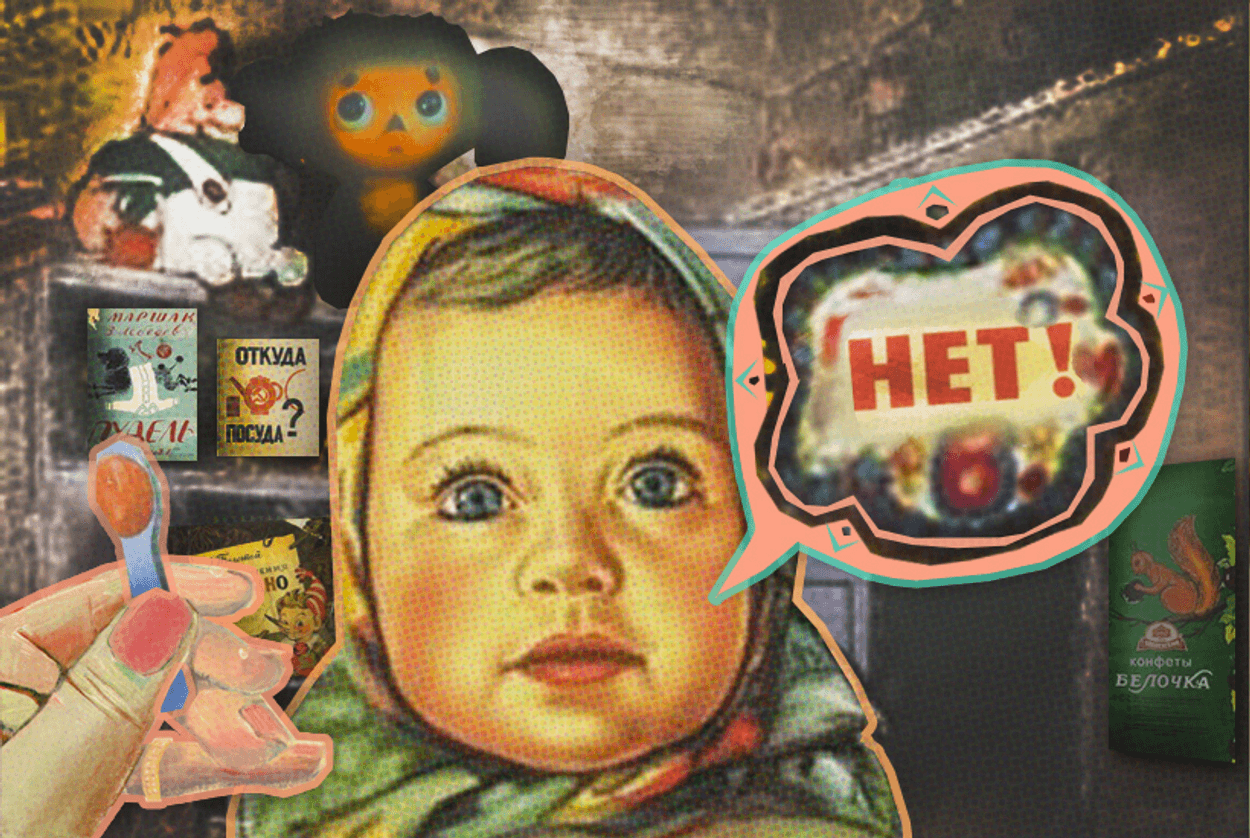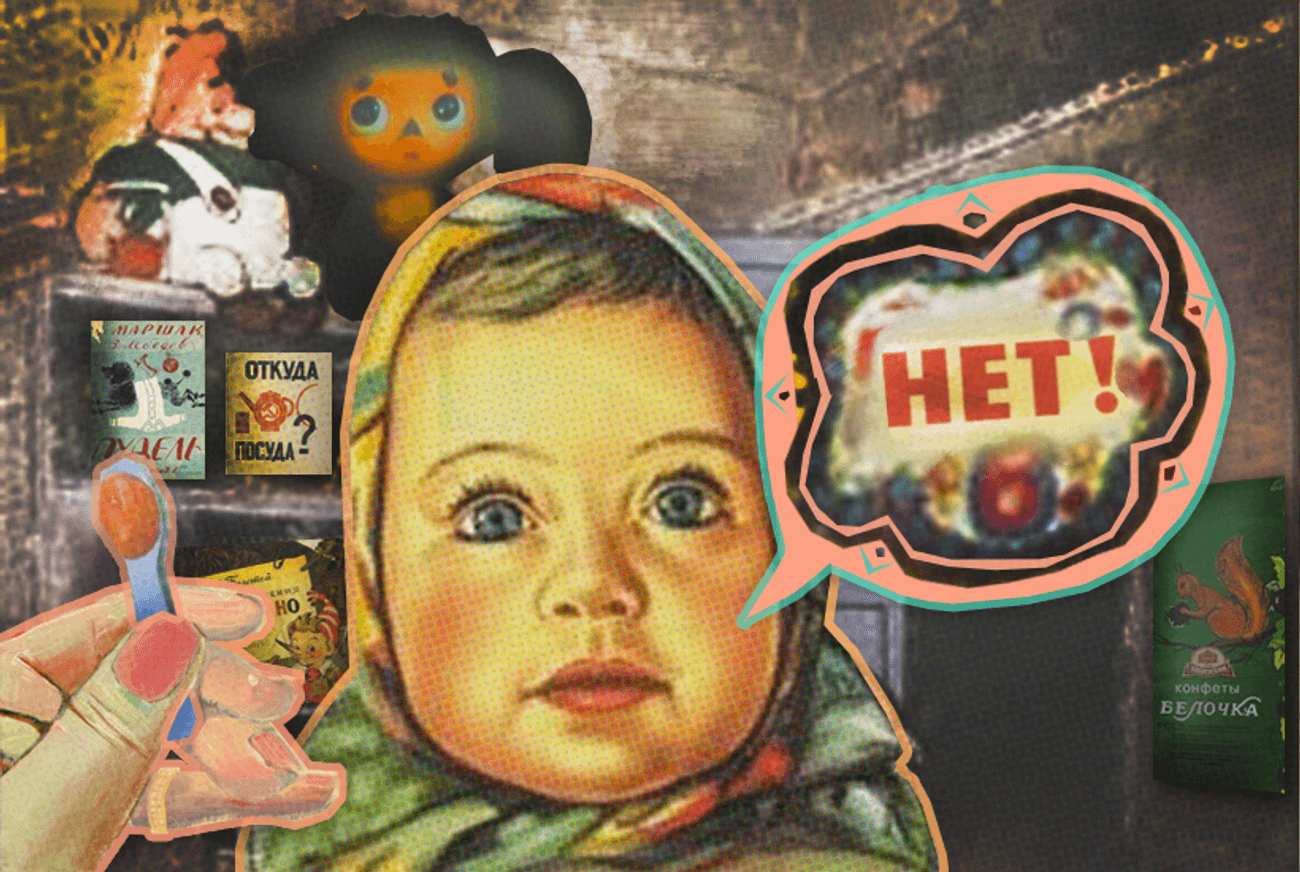When My Baby Says Her First Word, Will It Be in English or in Russian?
As a Soviet Jewish émigré, I broke all ties to Russia and its language—or so I thought, until my daughter was born




Every time my daughter babbles mem-mem-mem or da-da-da, I get excited that this word will be the first one that makes sense outside of her 1-year-old universe. Recently at breakfast, I even took a video, hoping to document the very moment it happens. But for the past few months, as I have anxiously waited for her first real word, I wrestled with a decision that will affect her entire life: Should I teach her Russian, my native language, so she can grow up bilingual? Or will she speak only English, like most of her peers, until she learns another language at school?
To be honest, Russian is not a language I’m proud to know. When strangers marvel at my bilingualism, I defensively counter with the fact that I have no ties to the country I left as a child. I feel lucky to have escaped from what is now the former Soviet Union, where Jews like me were subject to plenty of anti-Semitism. Like many of the other 1.6 million Soviet Jews who emigrated, we broke all ties when we left.
Or so I thought, until my daughter was born and I realized my ties to Russian run deeper than I knew.
For a Jew who fled from a country that hated Jews—and still does, by some accounts—teaching my daughter Russian doesn’t seem logical. Why would I want her to endure the same “you don’t look Russian” comments that I got after people see my frizzy brown hair? Growing up in the Soviet Union meant we as “ethnic” Jews were regularly told by our fellow citizens to go to Israel, and not in very polite terms. In the former USSR, Jews were always reminded that we weren’t Russian and didn’t belong. Even today, in modern-day Russia and my birthplace—which is now Ukraine—the depressing news is regularly about racism, homophobia, and lack of civil liberties. So, why should I ignore the past and lovingly connect my American daughter to these hostile roots through language? I do not want others to associate her with any of that nonsense.
When I was younger, I used Russian only when I didn’t want to be understood in America—talking about non-Russian-speakers in front of them without having them understand what I was saying, for instance, the way kids in elementary school use Pig Latin. But when I became a mother, I realized that the Russian language hasn’t faded from my life, even after 23 years in America. The urge to speak to my baby in the same caressing language I heard from my parents and grandparents is overwhelming. I do not want to sing about itsy-bitsy spiders; I want to sing about Cheburashka, a big-eared forest creature who had trouble making friends in the big city. (Some of the children’s songs she’ll learn from me will surely have Communist ties, such as the wartime song about a girl named Katyusha, which inspired the name of the rocket.) Apparently, say linguists, it’s common for parents to want to speak with their children in the same language they heard as children.
After months of discussion, my husband and I decided to raise our daughter to know both languages. Studies show that bilingualism makes your brain work in different ways, with bilingual children excelling academically. To raise a bilingual child, however, psychologists advise parents to have their children use the non-dominant language at home. That means my daughter will speak only Russian at home, until she is old enough to go to school; at that point, my American daughter will start kindergarten with a Russian accent.
So, even though I find it simpler to speak English with my Soviet-born husband, I’ve been speaking only Russian to our child—and it’s surprisingly comforting. I find that I want her to know the language, after all. There’s an innate part of me that identifies with the language and feels like I can express my love for her better in Russian, the language my own family still uses to speak to me. Subconsciously, it’s the language I associate with love and family, regardless of politics. And I’d hate to watch her grandparents and great-grandparents struggle to find appropriate words during their own conversations with her if they had to be in English, a language that still feels foreign to them. Her being able to communicate with our family is important to me.
I’ve also realized that I have a personal connection with the language that I can’t just erase. The words mean something. The bluntness of some Russian phrases makes it easier to say what I really mean, even if those same words sound harsh in English. So what if it sounds (to those who don’t speak the language) like we’re constantly berating each other? Sometimes we are. Speaking Russian has given me thicker skin and a constant insight into a culture that I don’t always love. But even with my own atrocious American accent, speaking Russian still feels like home.
As my daughter gets a bit older, I’ll need to try to translate what my English-speaking friends will say to her and make a conscious effort to speak proper Russian, without inserting too many American phrases. But I’m afraid that I won’t be able to express myself with my own limited Russian. Somewhere down the road, we’ll also try to instill in her a sense of history, explaining her uniquely Jewish position as a Russian speaker and the complicated relationships that Soviet immigrants have with modern Russia.
So, our Russian-only household will stay, and when she finally does say her first word, it will likely be in Russian. In a few years, I’ll watch her struggle with her accent as she babbles to her nursery schoolmates in English. And then I’ll watch her accent fade away as she goes to school. That’s how it was when I learned English as a 7-year-old. But I’m hoping she, unlike me, actually gets some use from her Russian—and won’t just use it as an excuse to take a few extra shots of vodka and talk about people behind their backs.
Alina Dizik is a freelance journalist. Follow her on Twitter @dizik.